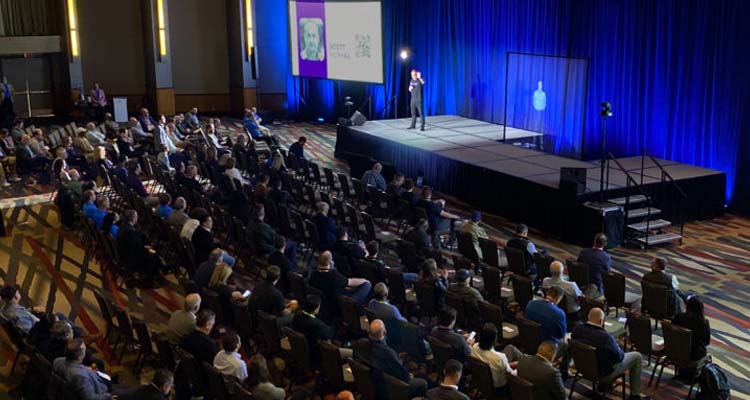Professional Development Future Comes More Into Focus

Those of us who spend time thinking about the future, whether that’s technology, people or culture, are often taking educated guesses at what the future will look like. The only way we know whether we were right or wrong, is by waiting and seeing. That is where we are now with educational opportunities. Clearly during the past few years, remote and hybrid sessions have taken over as the major ways trade education is delivered. Many have guessed as to what the future will be, and as we come out of the pandemic, we start to see how right we were.
I had the great opportunity to sit with several people who work in higher education and we thought about what the future of professional development looks like, and I think what I learned applies to many other industries as well.
Lesson one was that the willingness to travel is still split about 50-50 among employees. Whether it’s concern for the virus, changed family responsibilities or just general fatigue, many people are simply not interested in traveling. I would guess we will see this increase over the next couple of years to maybe 60-40 or 70-30, but there will be people who simply are not interested in going back to traveling for work.
A second lesson is that people have been very creative in how they have approached training, and it leads producers of professional development to think about what they offer in the future. Several people in the discussion argued strongly for recording sessions. Recording allows people to get the training at a time that’s convenient for them, and allows them to consume it at their own pace. Several participants had also used video recording as a local development opportunity: Whether it was in person, or via Zoom, they would get their team together and they would all watch the video at the same time. This would allow them the opportunity to chat about the session after, or to stop the playback and have a discussion during the recording. In a few cases, they even invited the speaker/presenter to attend a virtual meeting after the group had gone through the entire video. It was widely agreed upon that this works well with a more instructional/lecture type of session.
Then there was the discussion of hybrid. The hard truth about hybrid that this group admitted to learning over the past several years is that it’s very difficult to do it well. To host a hybrid event well, several things are needed (but the good news is that they are all things our industry makes possible). First, you need high-quality video and audio. We all know this, but oddly enough, sometimes overlook it. In order to make a remote participant feel like they are in the room, a PTZ camera in the back of the room simply does not work. That leads to the second need — staffing. If you want to do a hybrid event well, it needs to be produced and it needs to have in-person camera operators at a minimum, and ideally, audio operators. This is the expense that most people don’t want to put the money into. My advice here to people who are trying to put on a good hybrid event is to invest the money in it, and then to charge for the event. The one thing I have not mentioned is the budget for professional development. Interestingly enough, I am not hearing that budget is an issue for people who don’t want to travel to an event — it’s usually time or concern for their safety. So, put money into an event and charge the remote attendees. Several people who attended this meeting pointed to what is going on at their churches. Houses of worship seem to understand this and have made significant investments in the streaming they do of their services.
I believe that hybrid has been seen as something people think they have to do, but did not want to invest in. Many, many people have done it poorly, thinking it was a temporary that would be going away, not something anyone wanted to pay for, and therefore not worth putting significant effort into. Going forward, that mindset should change; developing/hosting hybrid events should be seen as an opportunity for not just redefining meetings and education and expanding access to broader audiences, but also for generating new revenue.





